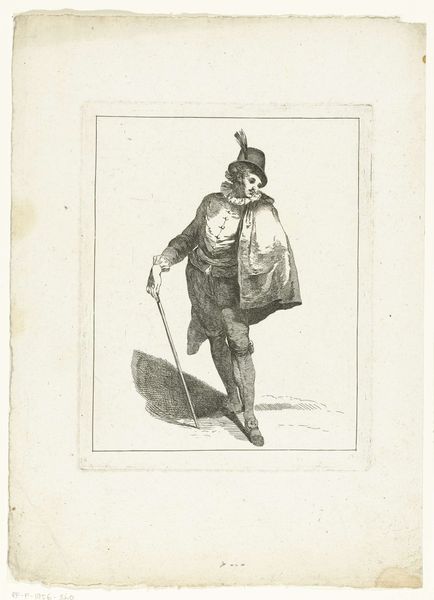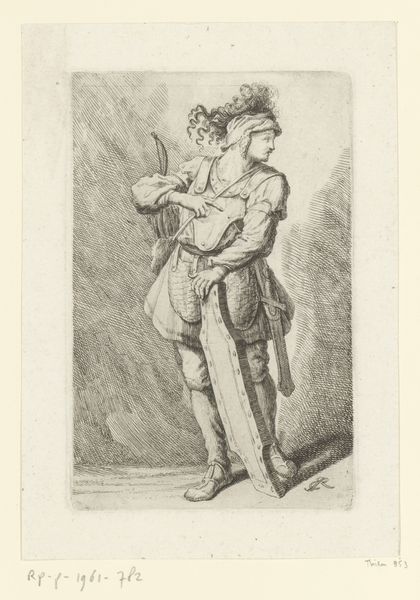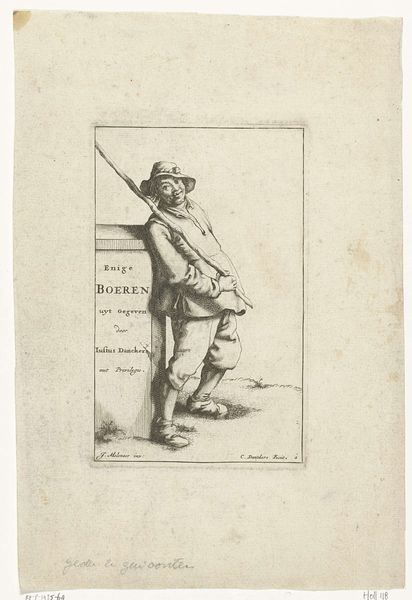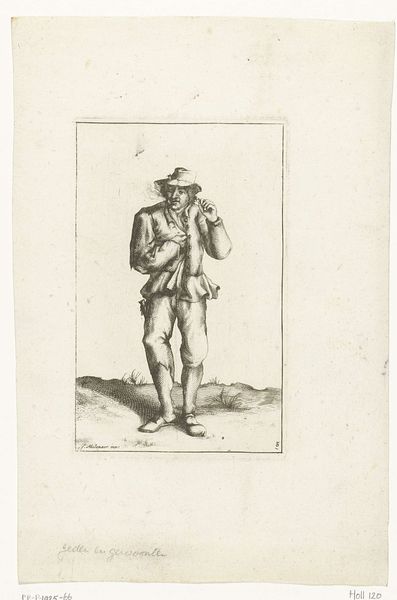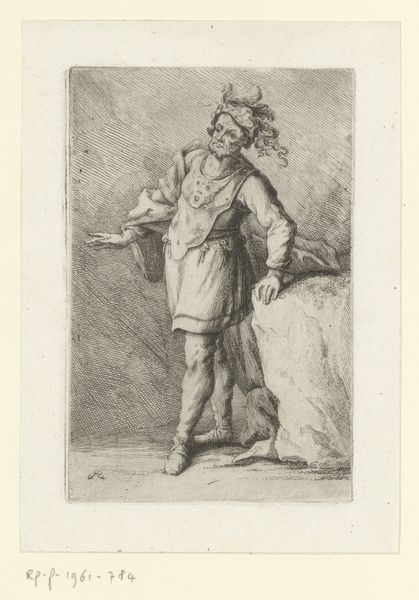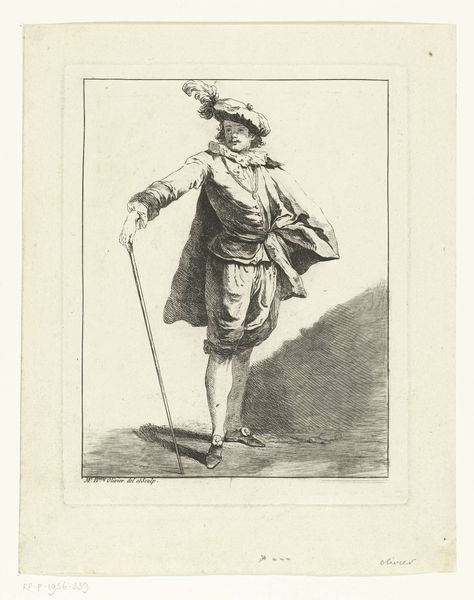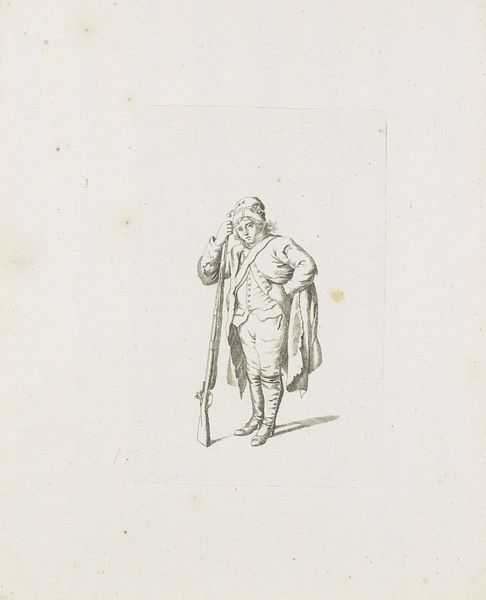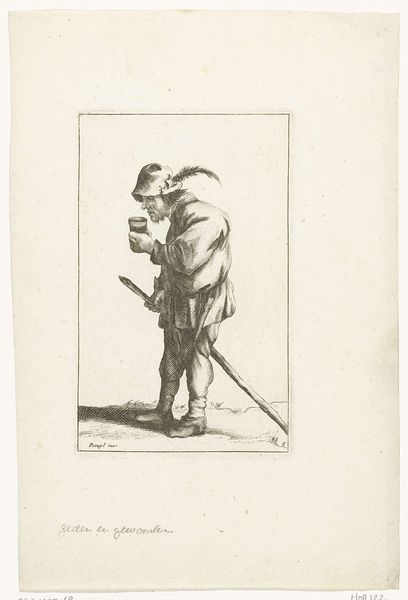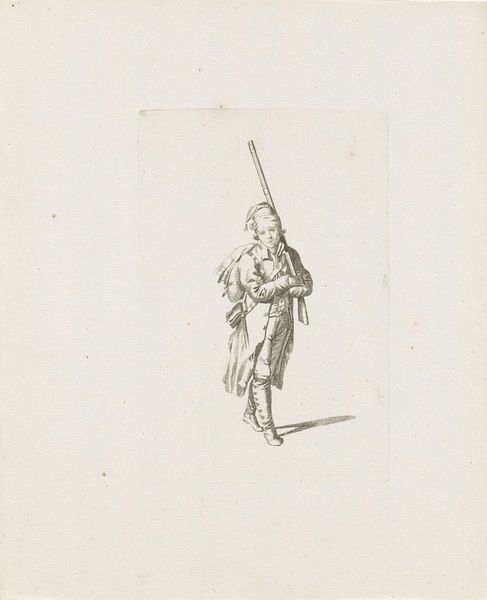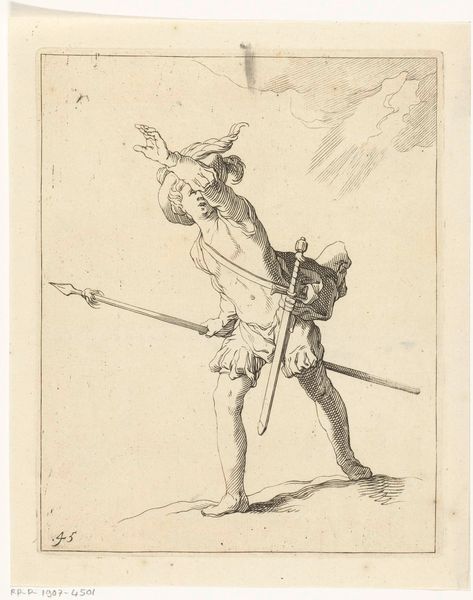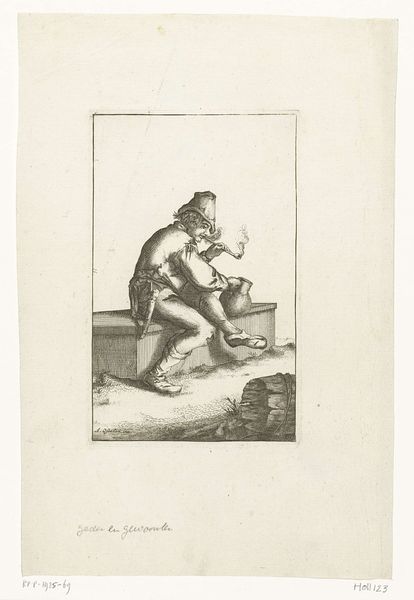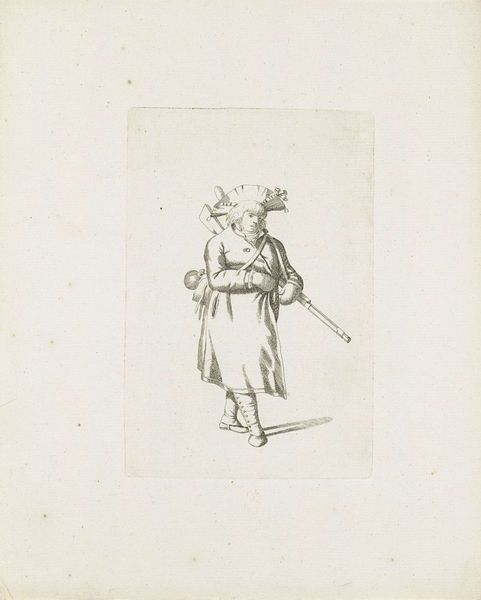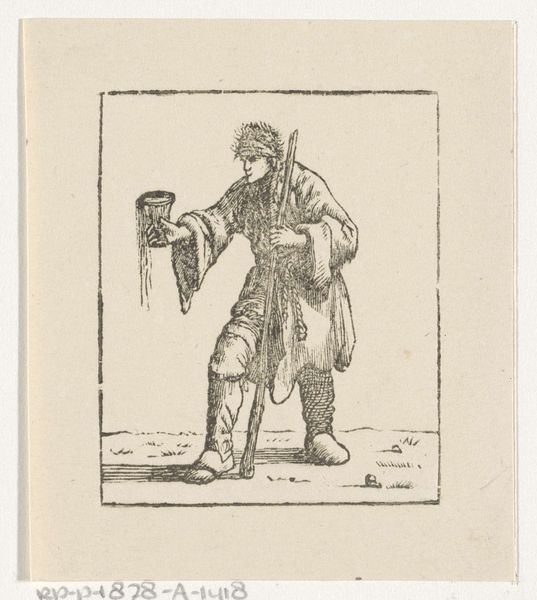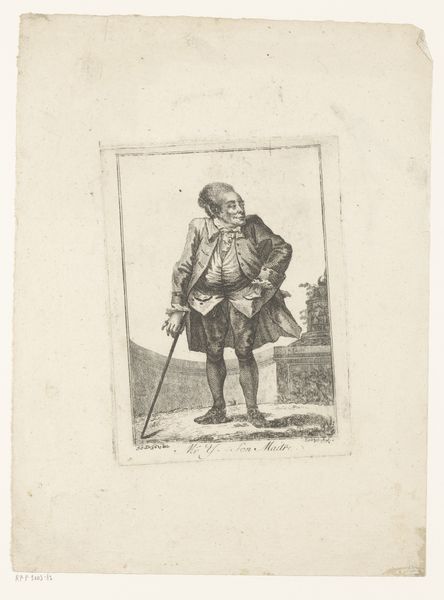
drawing, engraving
#
portrait
#
drawing
#
baroque
#
figuration
#
genre-painting
#
engraving
Dimensions: height 145 mm, width 91 mm
Copyright: Rijks Museum: Open Domain
This etching, made by Cornelis Danckerts around the 17th century, depicts a farmer leaning on his shovel. This simple tool is not merely an instrument for tilling the earth; it is a symbol laden with historical weight, a cultural artifact that evokes profound associations. The motif of a figure pausing amidst labor echoes across epochs. Consider the classical depictions of ploughmen, or even images of Adam after the expulsion from Paradise, destined to till the soil in perpetuity. The shovel, or its antecedent the plough, represents more than just toil. It signifies humanity’s connection to the earth, the primal struggle for sustenance, and the cyclical nature of life and death. The farmer's relaxed pose, hand on his hip, might suggest a moment of respite. Yet, there is a deeper resonance. It is a pause pregnant with reflection, a moment where the weight of the past—the collective memory of generations who have toiled the land—converges with the present. This image engages us on a subconscious level, evoking a shared human experience. The shovel, though simple, becomes a powerful emblem of our enduring bond with the earth. It resurfaces through history, continually evolving in meaning.
Comments
No comments
Be the first to comment and join the conversation on the ultimate creative platform.
